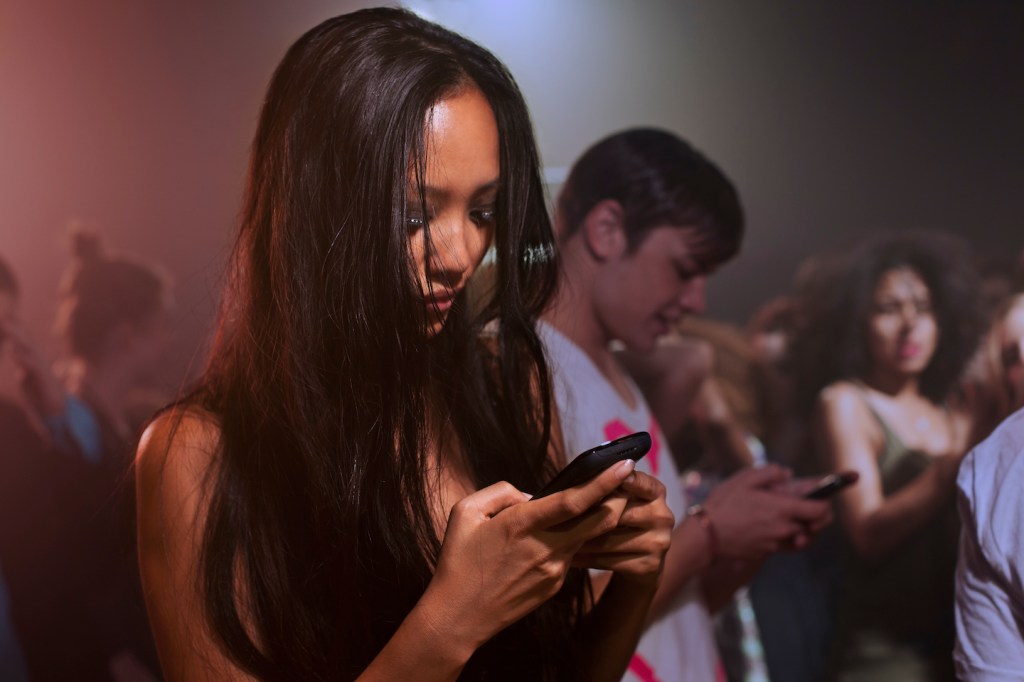An Australian police chief has floated the idea of creating a “sexual consent app”, which would allow people to establish and record their mutual consent on a mobile phone before having sex, in a purported bid to combat sexual assault and rape.
New South Wales Police Commissioner Mick Fuller suggested the app would be “something like the technology that people use now to date”, and indicated that it was inspired by COVID-19 contact tracing technology that is currently being implemented around Australia—where users are encouraged to fill out a form and “check-in” to a venue before being seated.
Videos by VICE
In this case users would enter their names, declare that they are of legal age, declare that they understand sexual consent, send requests and swipe to accept. The app would then encrypt and store the digital agreement to be used later “if needed”.
“The conversation around sex and consent seems to be anchored to the ‘50s and clearly it isn’t working,” Fuller wrote, in an opinion piece published by The Daily Telegraph. “There is no implied consent. It needs to be positive consent. How do we do that in this day and age? One option is with technology.
“People say ‘how unromantic is that’. But think of how many people are looking for friendship and love online—it’s not as though technology and dating are foreign to us.”
Fuller admitted the app “could be a terrible idea” when speaking to Sydney radio station 2GB, before going on to suggest that in 10 years’ time it could be the norm for prospective partners to fill out a digital form before having sex.
“You swipe left and right and there’s another option if you want to have intimacy,” he explained. “It certainly wouldn’t be an app that would be run by government. I would see it would be something like the technology that people use now to date.”
Unsurprisingly, the idea has been broadly rebuked by politicians, media commentators and social media users. One predominant criticism is that sexual consent, unlike a signature on a contract, can be withdrawn at any time, and people are free to change their mind about a sexual encounter whether or not they’ve already agreed to it.
Another is that one can easily imagine a situation in which, while being coerced and forced into sex, a victim is also coerced and forced into acknowledging “consent” on a mobile app.
Others point out that the proposed app, insofar as it aims to record and later prove consent, seems designed to protect offenders from legal recourse—as opposed to actually protecting victims from being sexually assaulted in the first place. Fuller himself hinted that part of the app’s purpose was to insulate men against accusations of rape and sexual assault, saying “you may have a son or a brother and you think this is too challenging but this app … protects everybody.”
Andrew Dyer, senior law lecturer at University of Sydney, echoed widespread concerns that such an app could be used to protect the wrong people.
“The proposal is well-intentioned [but] it would seem that the perpetrators of sexual assault might well gain more protection from this than victims,” he told the ABC. “If the evidence of consent on the app came into evidence at a trial then [it] could be used against the woman to discredit her.”
Dr Dyer also pointed out that the app would likely not cover the “subtleties” of sex and the varying degrees of consent that may be relevant in a given situation.
“People commonly when they’re having sex perform a number of different acts … in this phone app, you are not necessarily saying that you consent to all acts that occur later on.”
Police spokeswoman for the Australian Labor party Lynda Voltz said it would be “problematic” if the app implied consent.
“Where you have women that are subject to violence, where you have grooming and coercion, a woman having signed on to an app doesn’t necessarily imply that they’ve consented of their own free will,” she told AAP. Voltz also pointed out, however, that such an app would not necessarily shield offenders against legal action.
“Will signing an app mean that consent has been given and that sexual assault proceedings can’t progress? That’s questionable,” she said. “The question is whether the commissioner [Fuller] thinks this is a defence in law or not.”
A similar app to the one proposed by Fuller was launched in Denmark last month. Named iConsent, that app allows users to sign a 24 hour sexual consent contract, and promises to “make digital consent the norm, preventing misunderstanding and abuse”. It has less than 5,000 downloads.
Follow Gavin on Twitter
More
From VICE
-

Collage by VICE -

Collage by VICE -

Photo by Hahn-Marechal-Nebinger/ABACA/Shutterstock -

Sean Combs arriving at the Costume Institute Benefit at The Metropolitan Museum of Art in 2017. Photo by Marechal Aurore/ABACA/Shutterstock.
